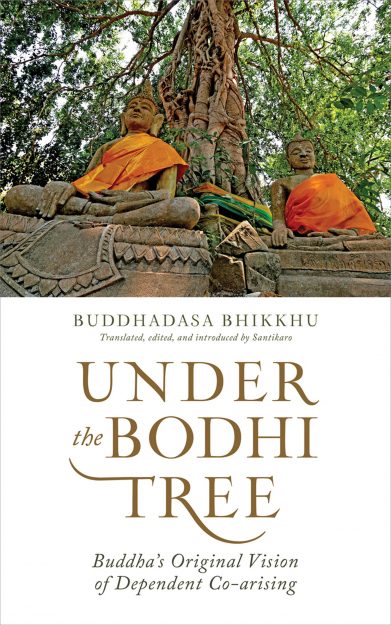The highest dhamma, the supreme dhamma to be known and realized, is called unconcoctability (atammayatā). I suppose this is a strange word for you; it is unlikely that you’ve heard of it before. Although it appears in the Tipitaka, nobody ever talks about unconcoctability or teaches it. Nonetheless, this is the most important dhamma. Unconcoctability is very powerful because it means that neither positive nor negative can be concocted. With atammayatā (unconcoctability) mind is in a state or condition that nothing can affect or concoct. We call this “unconcoctability.” There is nothing taken or regarded as positive or negative such that it can affect, condition, or concoct thoughts, moods, and reactions in mind. If doubt is finished, there is no concocting. If doubt remains there will be continual concocting via positive and negative and there will not be unconcoctability, the state of being that is so free that positive and negative can never affect or concoct. Usually, there is this condition or that situation concocting, spicing, decorating, and spinning us round. Please aim for the highest freedom wherein positive and negative cannot concoct and stir up mind. That is unconcoctability.
We have checked through the dictionaries of Buddhism that have been published in the West and none of them seem to say anything about unconcoctability (atammayatā). This is really quite surprising, because in the scriptures this word has an important place. That the Western scholars who compiled these dictionaries have left out this important word shows that their understanding of Buddhism was deficient in this respect. Please do not make the same mistake of overlooking this word unconcoctability and its supreme meaning, which leads us to the highest realization. The state of unconcoctability is the state of mind in which nothing can concoct or create messes of positivity or negativity. With this as your objective, you will meet the new life that is most excellent and peaceful.
When there is unconcoctability as both insight and realization, when life is above all influence of positive and negative, concepts of self and soul cannot arise. Feelings of positive and negative cannot occur in a mind that is unconcoctable. Thoughts of I and mine, he and she, hers and his, cannot happen with unconcoctability. Currently, lacking unconcoctability, we must live with all the problems and distress that come with self and ego, with I and mine, with he and hers. Suffering occurs due to these concepts of self, because we believe we are separate individuals and then this individualism grows into selfishness. Such selfishness inevitably causes suffering in life. Yet we only become selfish because we do not see unconcoctability.
Feelings of positive and negative cannot occur in a mind that is unconcoctable. Thoughts of I and mine, he and she, hers and his, cannot happen with unconcoctability.
When you lack understanding of unconcoctability (atammayatā) and cannot live with a mind free of positive and negative influences, you may travel around the world however many times you wish without ever finding a place to rest. So please consider the “resting place of struggling souls”—unconcoctability. Our lives are constantly embattled and struggling. Desperately searching for a place of peace, they never succeed in finding one. But as soon as you discover unconcoctability here and now, you will be able to find rest and peace in atammayatā.
Do not think of atammayata as something negative or lacking in something important; unconcoctability is beyond positivity and negativity. It is emptiness-reality empty and free of self. This is the resting place of the soul that has struggled without let up, afflicted by disturbance, conflict, and distress. Mind will be free, beyond concocting by positive and negative, beyond all ego and selfishness, unaffected by all things that once disturbed, hurt, and annoyed. This is the essence or heart of Buddhism, so please give this word your special attention: unconcoctability.
◆
© 2017 by Ajahn Buddhadasa, Under the Bodhi Tree: Buddha’s Original Vision of Dependent Co-arising. Reprinted by arrangement with Wisdom Publications.
